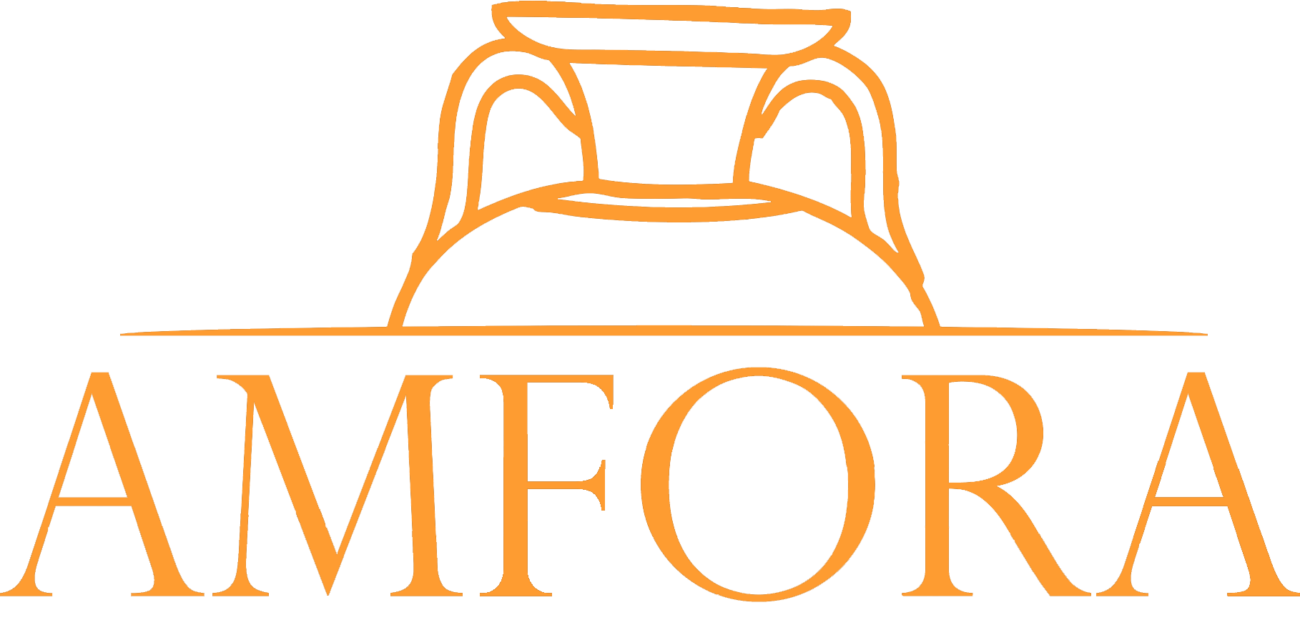Tigers and lions, the trend of Albanian crime bosses is infecting the Balkans
An illegal trafficking network of tigers and lions is developing in the Balkans through pet shops and “TikTok”, as their keeping is becoming a trend among crime bosses. In Albania alone, it is thought that there are 90 tigers and lions, while the facts show that the entire Balkans is “infected” by the desire to illegally have a big cat.
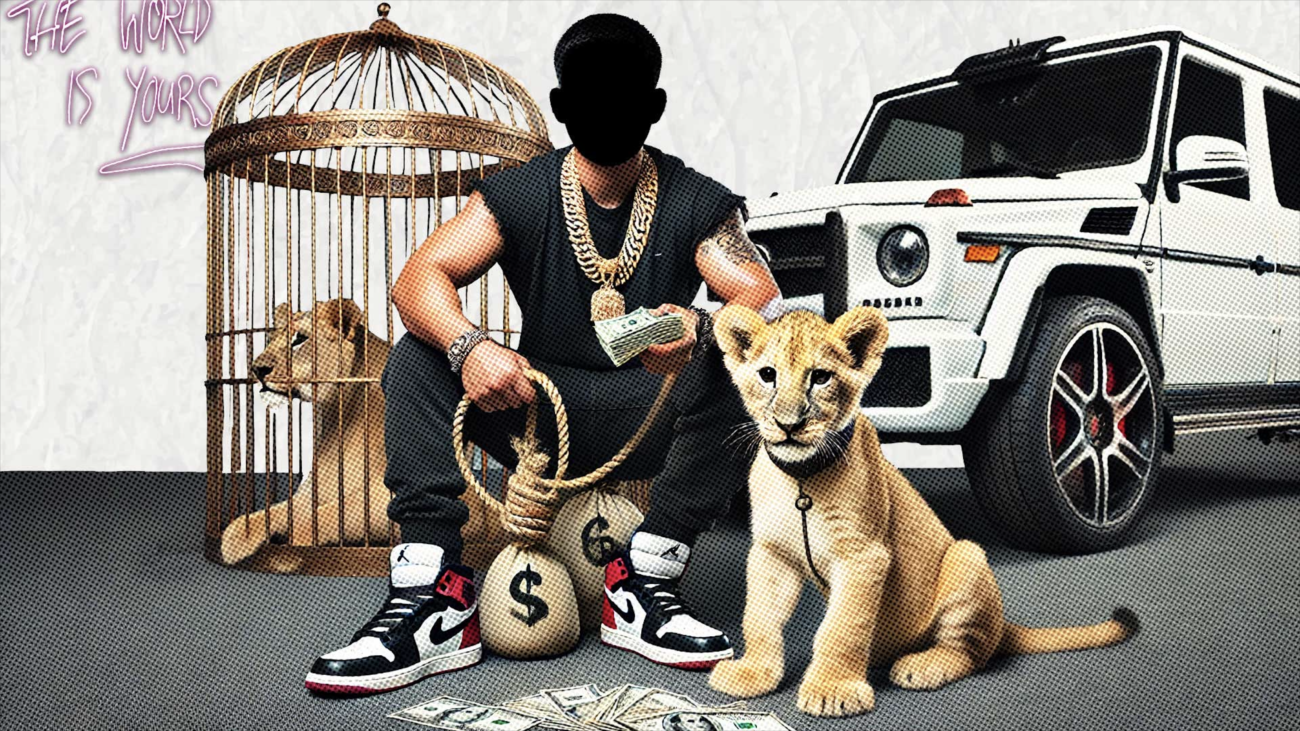
Illustrative graphics by Amfora Media
The iconic character of the movie “Scarface”, Tony Montana, masterfully played by actor Al Pacino, at the peak of his reign in Miami at the head of the cocaine network, was not satisfied with just building a villa that looked more like a royal palace. In its lobby, a red neon sign with the inscription, “The World Is Yours” shone above a fountain. While visitors at the entrance were stepped on by a tiger that contemplated the green garden.
These Hollywood scenes from 1983 continue to inspire, so much so that the “king of gambling in Albania”, Ervis Martinaj, allegedly built a similar palace, which he baptized as “Arbëria Palace” and under the bright neon, “The World Is Yours”, decided to pose his lion that had just started walking.
Baptized as “King Simba” and with the suffix “007”, which seemed to represent Martinaj, he first appeared on TikTok on December 21, 2021. The audience of the cub, who is thought to have arrived there at 3 months old, grew week after week, seeing him from the first days with a bottle of milk, to the poses in the luxurious surroundings of the “Arbëria Palace” Hotel, in Fushë-Milot.
“Simba is now quite big, about 1 meter tall,” said one of the waiters at the hotel bar with a smile. His account has stopped posting since Martinaj himself disappeared under still unclear circumstances, leaving behind scenarios similar to the end of the character he wanted to resemble, Tony Montana.
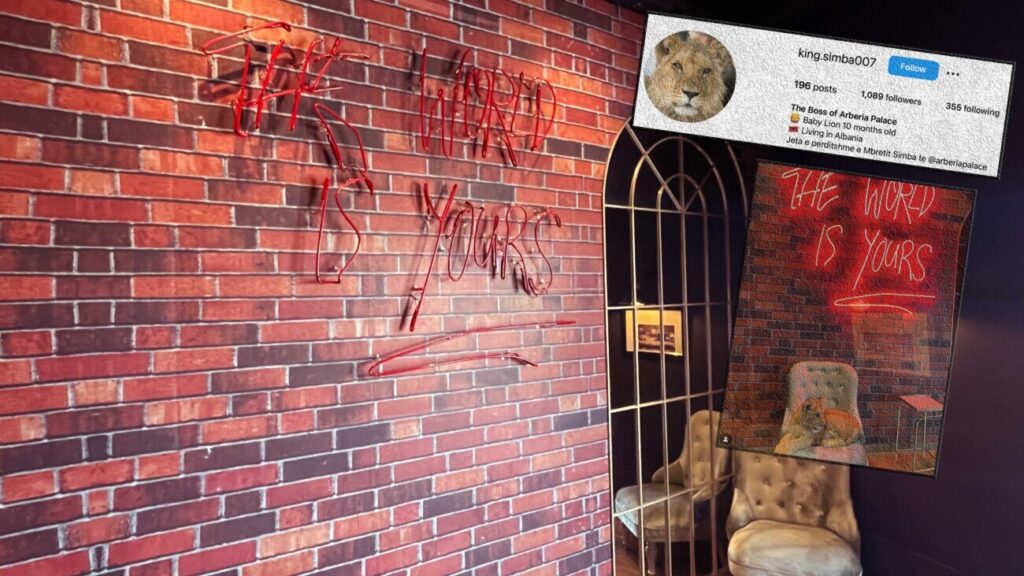
The lion is now grown and unsuitable for the hotel’s customers, who were once curious to see him. Arbëria Palace executives declined to comment on its whereabouts. But it seems that Martinaj turned keeping a lion into a symbol of power – for organized crime bosses, who were also involved at the highest levels.
After the success of 2017, when the international organization “Four Paws”, in cooperation with the authorities, intervened to confiscate and then send abroad 3 lions that were kept in scandalous conditions in the private park, “Safari Park Zoo” in Fier, crime bosses and the children of millionaires turned the situation upside down by importing dozens of cubs.
“If previously these animals were reported to be kept in cages in business premises, bars or hotels, there have been an increase in cases where they are also kept by individuals as companion animals. Their sale is openly ‘online’ and in stores, without any control,” commented the situation through an official statement, the organization “Animal Rescue Albania”.
Through a regional investigation, Amfora discovered that lion cubs have been appearing in recent years in countries such as Albania, Bosnia and Herzegovina, Montenegro, Kosovo, North Macedonia and Serbia – raising suspicions of an organized criminal network in their breeding, transport and sale.
During field checks in several countries, where undercover methods were also used to collect evidence, Amfora documented that at least in Albania and Kosovo, a lion cub can be easily ordered through “pet shops”, while evidence points to a large regional market, outside the control of the authorities.
“If you contact [pet shops], the first thing they say is, oh lions and tigers are easy for me. It’s difficult for me if you ask me for a dinosaur”, explained veterinarian Ariel Vasili.
In Albania, more and more lion cubs are being bought as pets, replacing the pets of crime bosses, children of businessmen and politicians, spread throughout the country, but mainly in the central and northern regions.
“It is thought that there are about 80 or 90 big cats, that is, lions and tigers in Albania,” analyzed veterinarian Ariel Vasili, for the calculations that have been made through the research work of experts and animal protection organizations. The numbers increased only after “lion cubs” became the new symbol of criminal power in recent years.
“If we make a comparison by the number of inhabitants, it is very close to the number of big cats kept in South Africa, which is the first country in the world,” explained Sajmir Shehu, from the international organization “Four Paws”.
“This is related to the mentality of these types of people. They usually think that I cannot keep a dog as a pet because I am not at the same level as my neighbor,” he added.
They are trafficked as puppies and manage to survive through feeding them baby-like milk, inappropriate treatment, and the way they are kept.
ahen later creates health problems for them.
“They were both malnourished,” said Sonja Mandić, director of the Palić Zoo in the city of Subotica in Serbia, of the two lion cubs that the police brought to her. “They were not fed the right kind of food or supplements, they were fed formula milk for human babies,” she added.
Lions and Tigers – The Latest Fashion of Organized Crime
15 minutes away from the now-fallen empire of Ervis Martinaj, another empire has been set up on a picturesque peninsula in the Patok Lagoon. “Royal Blue” is a luxury restaurant owned by the family of the self-proclaimed “drug lord”, Gëzim Çela.
On November 28, 2023, a baby lion was the special guest of Albania’s independence celebration, pouring glasses of wine, next to a traditional table, behind which 4 waiters in traditional clothing lined up to serve him. That shows a video on Instagram.
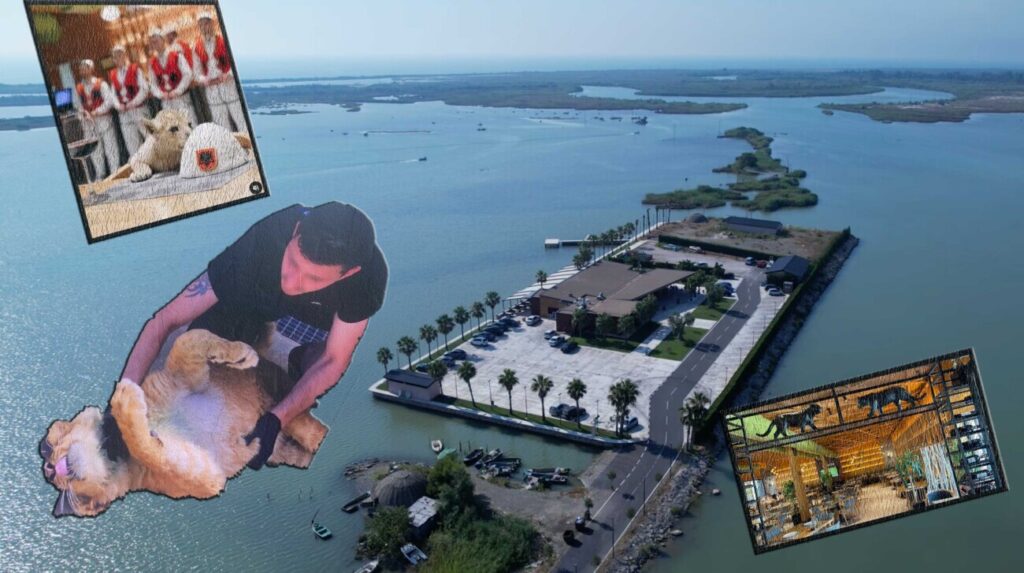
“He’s 8 months old now, he’s grown up a lot for a visit,” one of the restaurant employees said slowly, when we asked to see the lion, adding, “It’s too dangerous for you.”
A little further on, “Are you looking for the lion?” a boy behind the counter asked eagerly. “I have one here,” the boy added, taking his cell phone out of his pocket and showing photos of the exotic animal.
We soon learned that his name was “Tajson” and that he was fed fresh meat every day. Gëzim Çela lived for several years on the run and gave in to his criminal imagination, hiring the chief of the Kurbin Police, Dritan Metaj, as his “driver.” Çela, once a police officer himself – was arrested in Kosovo and after extradition is accused of being the head of a structured criminal group for drug trafficking.
However, Tyson is said to have been brought into the family by his son. The owners of the “Royal Blue” restaurant, where the lion had appeared several times, refused to comment on him.
Activists say that keeping these animals by criminal families also makes it difficult to identify their owner, in case of a denunciation to the authorities. Gëzim Çela managed to change the ownership of the restaurant before his arrest, while other drug lords have changed their names and are not the owners of real estate.
“I have no way of knowing who the person is, I only have a video and it is removed the moment the case becomes public,” explained Oli Pero of similar cases, who runs the “Animals Need Me” organization, focused on Shkodra.
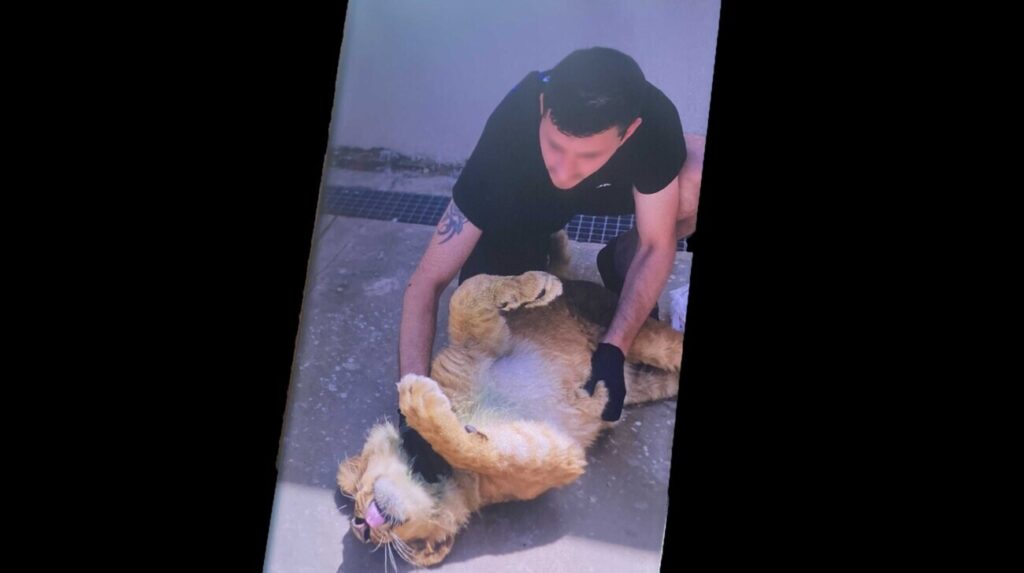
Organized crime in the region, although it worships the figure of the lion through quoting quotes and postings with its icon (“emoy”), seems less courageous to go to these levels.
Experts indicate that this approach was also developed after the relocation of Albanian organized crime exponents to Dubai, where, although it is illegal, the criminal elites of the Middle East who keep tigers and lions began to be inspired by the image.
“About 70% are lions and 30% are tigers”, analyzed expert Sajmir Shehu.
“They think that lions are a little calmer, not as aggressive as tigers and they have information about people who usually have tigers and then change them into lions because tigers are very aggressive”, confessed Shehu. “I don’t know what they expected?!”, he followed with rhetorical questions.
Moving even further north in Albania – “King Didi” was another surprise when he appeared in a narrow alley, the pillars of which were overloaded with security cameras. Next to a luxury Mercedes Benz “G” class, he walked like a wandering pedestrian, apparently the newest resident of the neighborhood.
We calculated his audience and he is the most famous Albanian lion on “TikTok”, where one of the videos has received 7.2 million views. Among the comments from the audience, prayers stand out with the message that when he grows up and can no longer be kept, to notify the organization “Four Paws”.
But the arrogance of the account manager on “TikTok” is followed by comments that he eats 2 kg of meat a day.
“It is illegal to own a wild animal. It should be free in its original habitat and not as a pet, in a house,” commented a social media user in English.
Anisa Kostani comes to the side of the account owner – who asks the commenter to speak Albanian – by showing that she knows the law well and not to deal with lions, but with dogs on chains.
“Ahaa, I am a police officer, you show me the law,” she replies to the commenter who points out that it is illegal to keep a lion.
The officer works in the economic crime sector of the Elbasan Police Department – another city bloodied by clashes between criminal gangs. Passionate about snakes, which she exposes on her social networks, she is not an isolated case. Amfora also identified other police officers who were exposed with young lions.
The Lion in Shkodra is suspected of being based in one of the bases of the Bajri crime family, in what is known as the Dobraç Neighborhood. Like the hashtags accompanying the lion’s videos – Belgium and Brussels – the group is known for being extremely violent in its activity.
criminal act there, which he has also transferred to Shkodra, facing in recent years the Special Prosecution.
In the last 10 years, the State Police has investigated people who have caught or kept animals illegally, but it seems that they have not yet reached the depths of crime, where lions and tigers hide.
“For the criminal offense ‘Damage to protected species of wild flora and fauna’, according to article 202 of the Criminal Code, for the period 01.08.2014 – 01.08.2024, 15 cases have been identified, with 19 perpetrators prosecuted, 3 of them arrested in flagrante delicto, 15 prosecuted while at large and 1 declared wanted”, the police officially explained.
In one year, Oli Pero and the activists have filed 22 criminal reports in several cities for animal abuse. “However, these criminal charges have not borne fruit as we might have hoped at first because the criminal codes for animals are numerous,” the young woman said.
Amfora learned that she and other experts in Albania have faced pressure and physical attacks after following up on various cases of illegal animal keeping. Meanwhile, in North Macedonia, one of the experts and activists who identified the keeping of a lion was threatened with her life.
“It was a truly terrifying experience for me,” the woman said. “The mafia discussed killing me and other things like that,” she added – after denouncing that a lion cub was being exposed on social media and calling on the authorities to act.
The rise in popularity of lions is also being influenced by the appearances of public figures alongside them. Albanian rapper “Noizy” appeared in a video on “TikTok” playing with two lions – his manager did not comment on the case when asked.
He also got involved in a TV prank, assuming he had bought a lion and called fellow rapper “Stresi” directly, who, not realizing he was on national television, started talking about a real case – which was implied to be Ervis Martinaj’s lion.
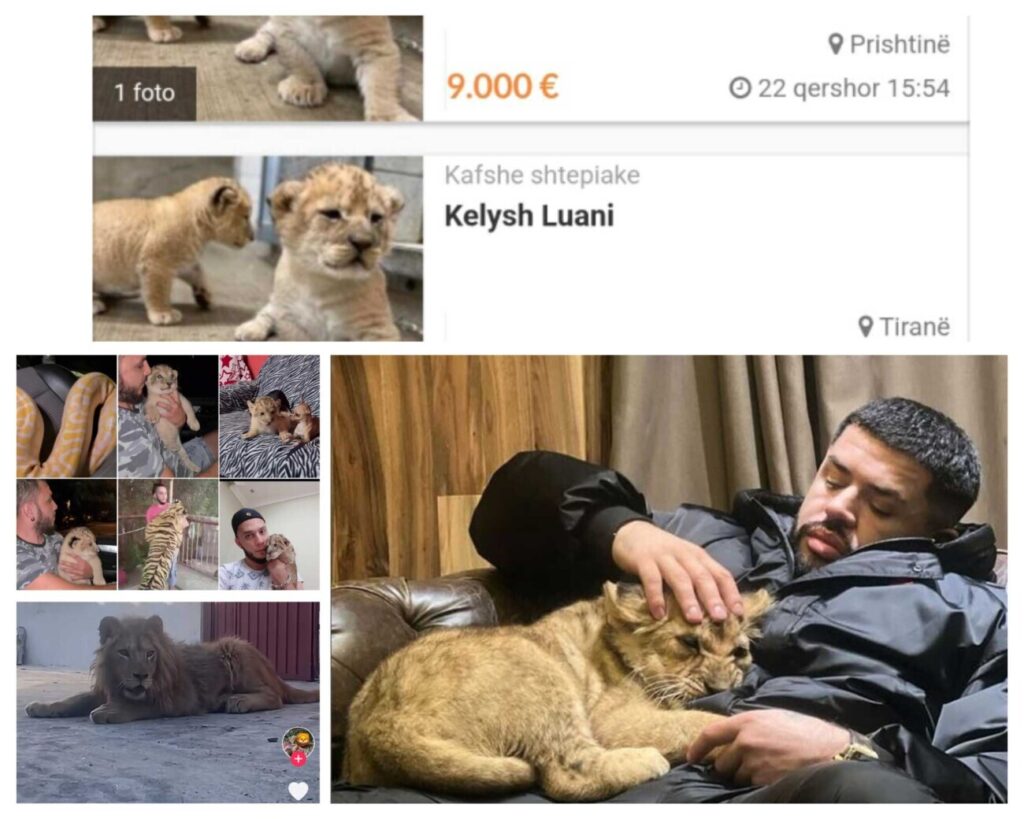
“TV shows often feature exotic animals like wolves or snakes and interview their owners for entertainment, captivating the public in Kosovo,” commented Arif Aliu, worriedly from across the border.
“The sentence is too low.” The environmentalist appealed for the law to take people seriously for this type of crime, adding, “It’s not that we lack the legal basis to prosecute crimes, but it’s the implementation that is lacking.”
“Influencers” on social media are also part of the impressive lion shows. Stefan Janković is a young man in Serbia who appeared raising a lion cub with both hands – He counts at least 3 million combined followers on Instagram, TikTok and YouTube.
From “TikTok” to “Pet Shops”, the illegal trafficking route
The monopoly on the transfer and keeping of exotic animals such as lions and tigers in the Balkans is held by “zoological units”, i.e. certified zoos – mainly state-owned, which exchange them with each other according to needs in the region and beyond.
“There is no price for them, there is no legal market for the sale and purchase of lions and tigers”, explained veterinarian Ariel Vasili.
But in front of this is a reality where the illegal trade in wild animals ranks as the fourth largest criminal activity worldwide, after arms, narcotics and human trafficking.
This market is worth around $ 23 billion a year according to the World Economic Forum. Mainly through “TikTok”, traffickers manage to easily find clients and camouflage themselves. Amfora discovered that in Albania and Kosovo, some traffickers hide under the guise of “Pet Shops”.
“Communicating with foreign mobile numbers and not with Albanian numbers is like a covert form to bypass traditional channels such as ‘Facebook’, which was previously used”, analyzed Xhemal Xherri, who follows and denounces such crimes through PPNEA (Center for the Conservation and Protection of the Natural Environment in Albania).
He explained that “TikTok” and “Instagram” are the most flexible and difficult tools to track. Websites are also used for the trade of various goods, where from an open search, in two different posts for “Tirana” and “Prishtina”, the same seller offered lion cubs for 9,000 euros.
“Prices range from 6,000 euros – when the main source is found – to 12,000 euros,” Sajmir Shehu estimated based on his research.
“Golem Dog Farm” (“Ferma e Qenve Golem”) continues to maintain its base in the village of the same name near Durrës. But it now also has its own pet shop in the capital. On its TikTok profile, a post with a lion cub is kept at the top of the page, as the most special animal that is traded.
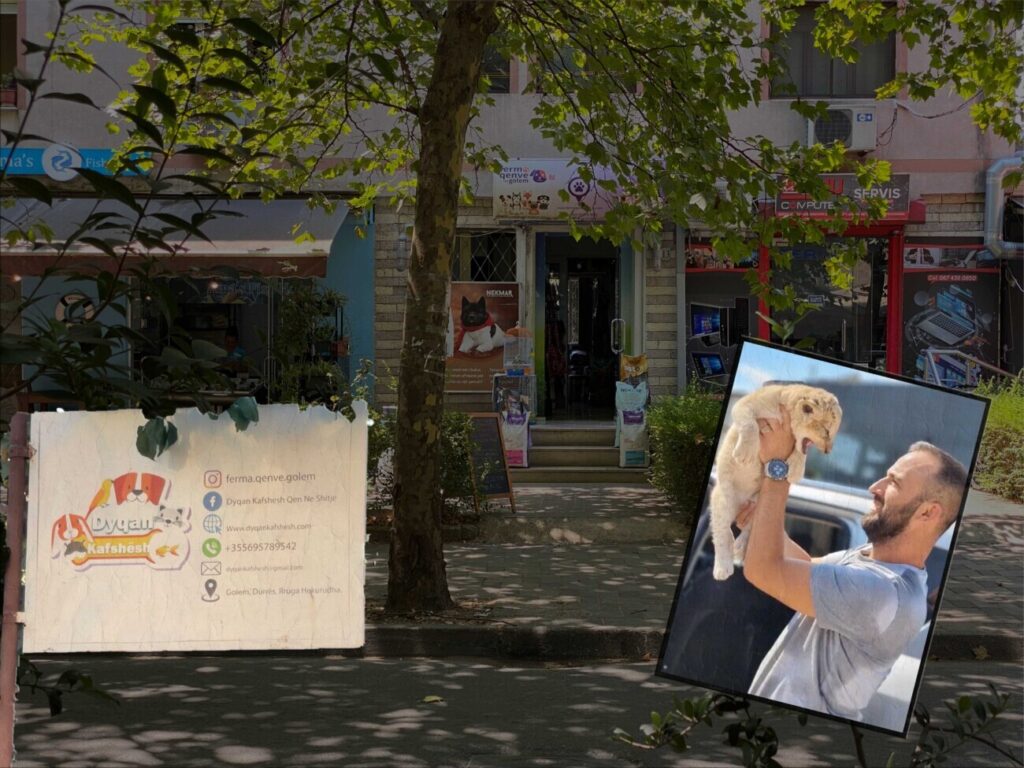
A slightly rusty sign, not far from the coastline, shows that tucked away in a multi-story residential and service building, there is a pet shop, where the smell of dog excrement invades your senses dozens of meters away.
The man with zero hair, about fivetithes, he walked among the puppies, which were painted with care for several meters on a wall, accompanied by expressions of love and care for them.
But when asked about the four-legged members of the big cat family, he indicated that he could provide a lion cub within two weeks, for 3,000 to 4,000 euros each. However, after talking to his son on “WhatsApp” to close the deal, he turned around sharply, saying, “We don’t sell lions here!”.
Meanwhile, another pet store, “Pet Store Tirana”, promises to bring a lion to your home for 7,500 euros. But these are not the only ones, other traffickers offer lion and tiger cubs in a more camouflaged way.
When asked again two weeks later by phone whether they sell lions to private clients, the pet store in Golem refused to comment. But the rapid timing of the animals arrival has raised suspicions that the “farms” are located somewhere in or near the Balkans and that the trafficking is carried out illegally via land routes.
“From the data we have from the field and from social networks, it is a well-structured illegal market for smuggling wild and exotic animals, bypassing the CITES law, national and international laws on animal trade,” explained veterinarian Ariel Vasili – specialized in the treatment of cat species.
Albania is part of CITES – the International Convention on Endangered Species – and for any animal or bird classified internationally as endangered or rare, the transporter must have an export permit for their entry or exit from Albania.
The Ministry of Tourism and Environment is responsible for implementing CITES in Albania. But according to official data, the situation has no connection with the local reality. Similarly, from the observation in the region, excluding Kosovo which is not part of the convention, there is a lack of official data on lions discovered, proving that it is 100% illegal.
“There have been 2 cases of captivity of tiger and lion species in our territory, which have been seized and sent to shelters abroad, the ministry in Albania officially explained.
Also, from the analysis of 10-year data of all imports and exports, it does not appear that lion or tiger cubs have been officially introduced, except for the cited case of the private zoo in Fier and the new arrivals to the Tirana Zoo.
“This type of trade in exotic animals is a sector that generates a lot of income and connects many interest groups,” analyzed Xhemal Xherri from PPNEA.
“Of course, social networks are a very good way to promote this type of trade,” he added.
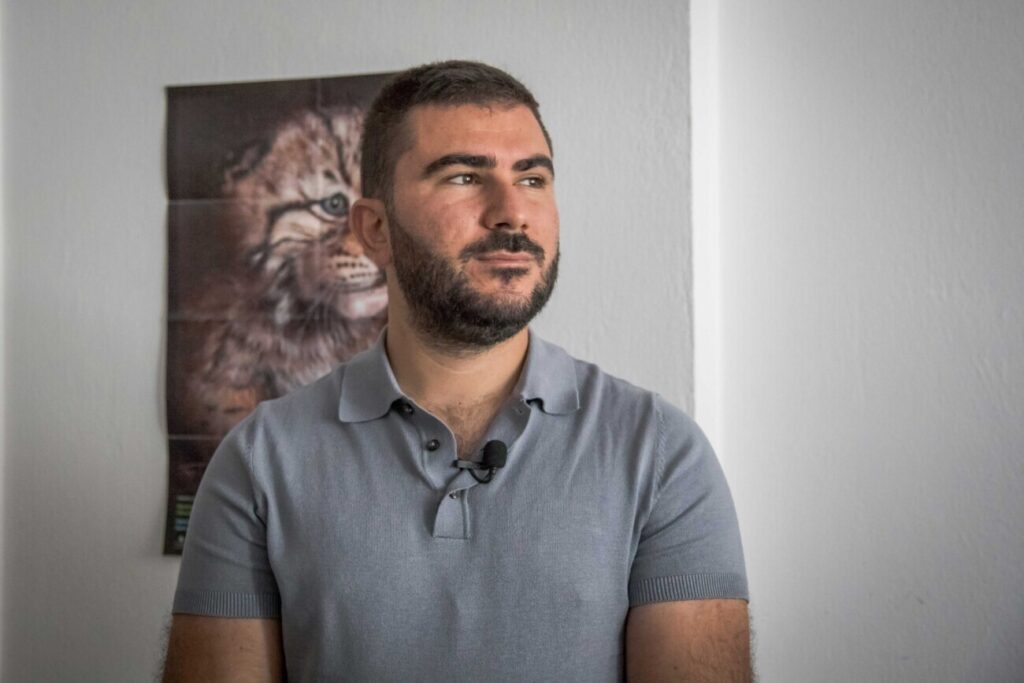
While it is suspected by several of our sources that some of these lion and tiger cubs pass illegally through land customs, the State Police stated that in 10 years it has not identified any such trafficking case.
“For the criminal offense ‘Trafficking in species protected areas of wild flora and fauna’, according to article 202/a of the Criminal Code, for the period 01.08.2014 – 01.08.2024, no cases have been identified, therefore no actions have been taken by the State Police and consequently no information is generated”, the police in Albania officially explained.
Also in Kosovo in various cities, pet stores have started advertising lion cubs for sale. At the end of May, “Smart Pet Shop” in Gjilan, offered 2 lion cubs for sale on Instagram.
“Hello dear customers, we inform you that the lions are no longer available. Thank you for your interest!”, the pet store wrote on “Instagram” on May 31 – But when asked by us, the merchant said that he only sells dogs, cats and parrots.
130 kilometers from there, there is “Pet Store Peja”, another pet store. “At the beginning of my business I didn’t know, I went to the website and saw that someone was offering tigers and lions, I posted them too,” the man explained.
“I posted them, but the police called me for two hours and I went to give a statement in Peja,” he added, but he still said he continued to offer other exotic animals, including small turtles, monkeys and dangerous snakes.
“I can pick them up from Belgrade whenever you want,” he said.
In Pristina, Arif Aliu of the Animal Rights Foundation suspects that the owner of the Peja shop uses his second business – a taxi service that operates throughout the Balkans – to move the protected species.
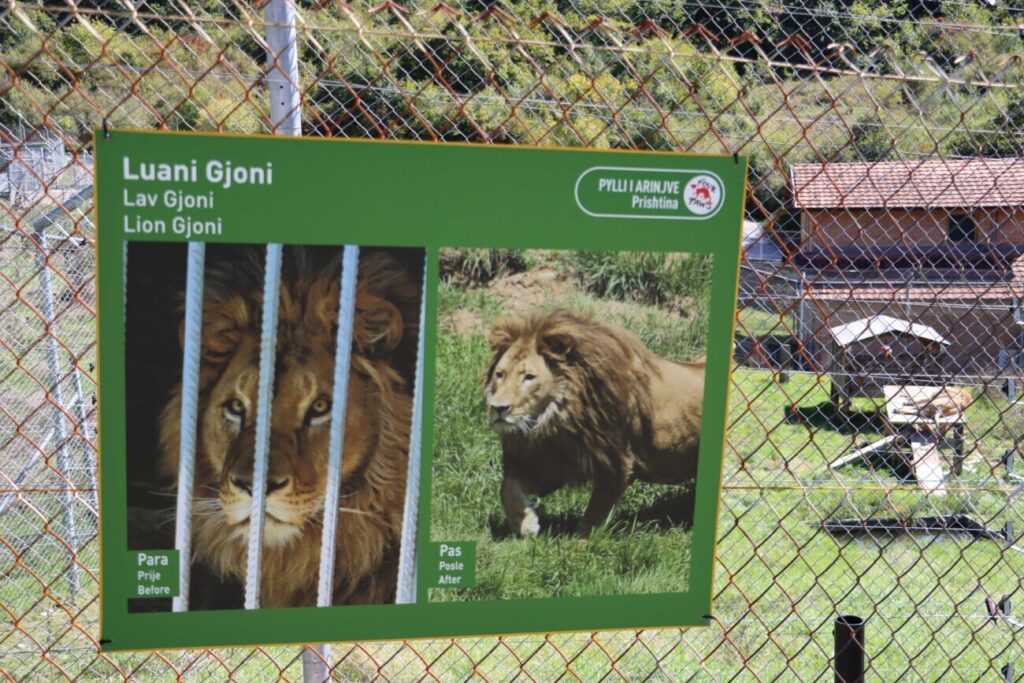
“We think the cubs are somewhere in Croatia or [somewhere else in] the Balkans, and he is simply advertising them to gauge interest before bringing them to Kosovo,” Aliu explained, fearing that the trend will soon flourish there as well.
The lions and tigers, according to analyses conducted by veterinarians, are not native to Africa and were not born in the wild. They were born to mothers held in captivity, and the diseases they carry have raised suspicions of a farm that could be in or near the Balkans.
“They say they bring them from Serbia That’s how they say, oh it came from Serbia,” veterinarian Ariel Vasili said, regarding most of the comments heard in Albania about the origin of these lions.
A health problem that has been talked about recently is that lions are starting to show problems with their knees, a health issue generally associated with inbreeding.
“We have started to see that even those from Serbia have problems with their knees because they [traffickers] probably have a little difficulty finding new pairs. Females are hard to find, they are also difficult to order,” Vasili analyzed for Media Amfora.
“The little information I have, they usually come through Kosovo from Serbia, or through Montenegro. But it is a little more difficult. “Through Kosovo, it is a little easier for them to enter through the Mitrovica region,” were the suspicions of Sajmir Shehu, who has worked with the “Four Paws” organization to send lions held in captivity abroad.
Suspicions are also increased by the fact that traffickers – pet stores – promise that they can arrive in 2 weeks. Amfora searched for possible traces of two suspected farms in the territory of Belgrade and Niš, but their existence was not identified.
“Everything about animals in one place”, this is the motto of the young man who identifies himself with the nickname “Dani Tarzan” on social media platforms like Instagram, TikTok and Facebook. He is thought to be originally from Dubai and lives in Serbia, also presenting himself under the name “Dani Al Aloush”.
He looks to be in his 30s and first appeared on Instagram in 2022 and a year later on TikTok. From lions, to tigers, including other exotic animals like monkeys and snakes, he has decided his phone numbers to sell the animals, birds and reptiles he trades.
“I don’t have it in Serbia, it’s in Dubai,” he said when asked about the lions, avoiding confrontation with reporters. The videos show that he keeps the animals in an apartment with lowered shutters, where a long weapon, similar to a rifle, is also visible and there is a green space outside. Relevant authorities in Serbia did not respond to requests for information on the situation.
“Of course, in Serbia, as in any country that borders the EU, there is this concern about the illegal trade in animals,” said Belgrade veterinarian Kristijan Ovari, adding that authorities have not shared the results of any investigations that they may have done to uncover sellers or traders of tigers and lions.
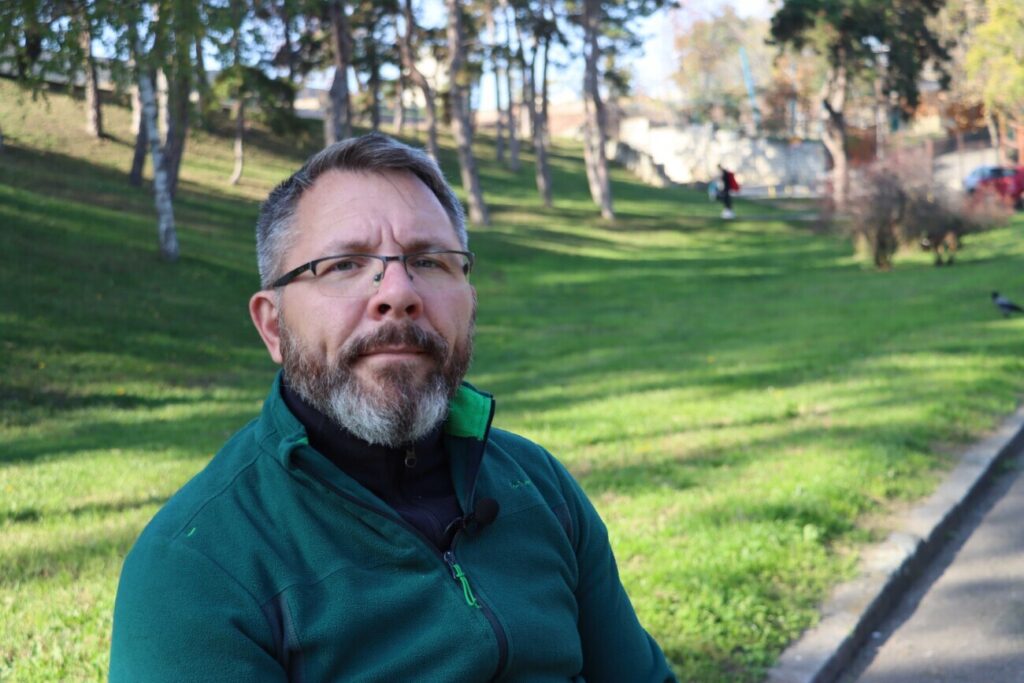
But he suspects that there is as much demand for illegal lion cubs in Serbia as there is in Albania. “People like that are more likely to have a pit bull or something like that [lions and tigers],” he said.
However, a chain of responsible authorities in Serbia did not respond to requests for information about the situation there.
Accidental discoveries, hundreds may be hidden in the Balkans
Near the border with Hungary, on the outskirts of Subotica, local police were notified by a resident who could not believe his eyes about what he had seen. A lion cub, seemingly exhausted but not at all scared – which is suspected to have been used to people – was wandering around.
The easiest solution for the police in these cases was the nearby Palić Zoo, where the female cub was sent in September 2023.
For the zoo staff, it was no surprise, since in 2022 the police had also “dumped” a rescued lion cub there, forgetting to search for the perpetrators to the end.
In the first case, “The male lion had kidney problems, but has since recovered,” explained Sonja Mandić, the director of the Palić Zoo, where she has worked for 15 years, to Amfora.
Similar cases were also identified in Bosnia and Herzegovina, Montenegro and North Macedonia, where lion cubs were seen on the streets and on social media, which although remain isolated cases, the authorities have launched investigations – which have not yielded any serious findings so far.
“We see that more lions and other big cats are ending up in private ownership,” said Simone Schuls, the Sanctuary Manager from “Four Paws“, in an interview in a big cat rehabilitation center in the tiny Dutch village of Nijeberkoop – and lions kept in captivity in the Balkans have also ended up for treatment, including the lions that were rescued from Fier and from Montenegro. “It is expected that in the coming decades, many such animals will need shelters,” she added.
“At a young age they can be kept in home conditions, but when they grow up, they pose a danger to those who keep them, to their relatives, but also to society in general,” commented her colleague, Afrim Mahmuti.
“These are not pets, but they don’t understand,” added Mahmuti, the Kosovo director of the organization “Four Paws”, which has built the “Bear Sanctuary”, an environment where bears and one lion – Djoni – rescued from captivity in Albania and Kosovo are rehabilitated and live.
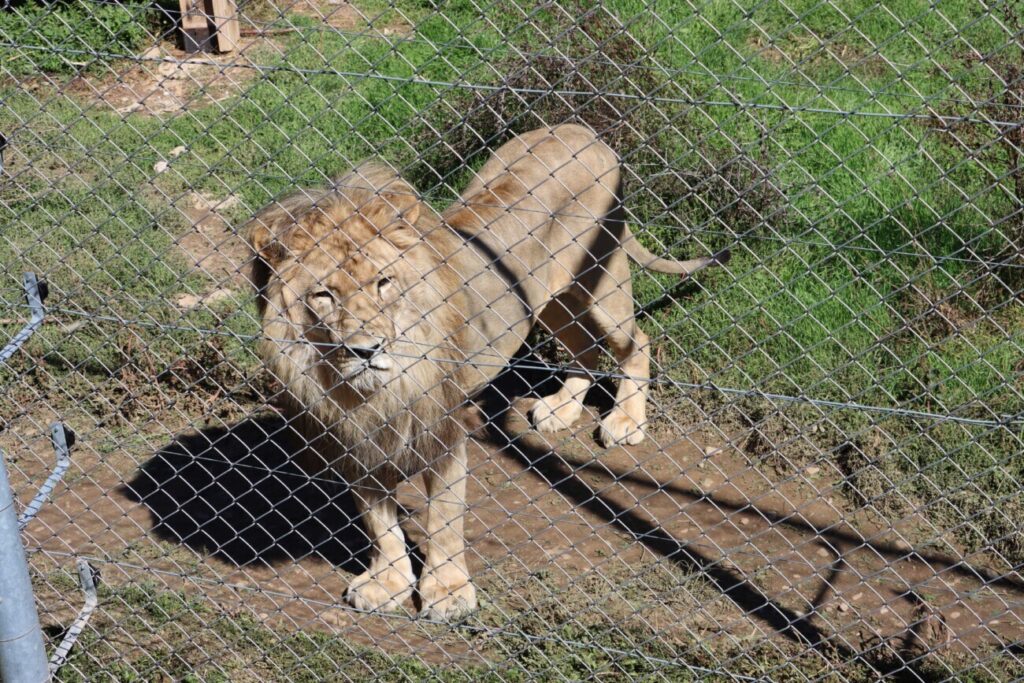
The high number of lions and tigers kept in private facilities in Albania and the Balkans has raised concerns about the future of their treatment, processes that require dedicated spaces and high costs for maintenance and food – while to date there is no regional center for keeping them in case of rescue.
“The zoo usually helps, but our problem is that we have very limited resources. We can’t accept many animals,” analyzed the veterinarian of the Belgrade Zoo, Kristijan Ovari, worriedly for Amfora.
As the number of lions kept illegally in private facilities in the Balkans increases from time to time, the pace of authorities is much lower for preventing the creation of a large population, which will require millions of euros of investment in their capture and treatment in the near future.
“This article was developed with the support of Journalismfund Europe”

Authors: Geri Emiri – Director of Amfora Media and investigative journalist focused on issues of damage to cultural heritage and environmental crime;
Ingrid Gercama – Investigative journalist reporting on environmental crime, politics and trade from the Balkans and Africa;
Nathalie Bertrams – Documentary photographer and journalist reporting on environmental conflict and social justice;
Vjosa Çerkini – Multimedia journalist and documentary producer from Kosovo.


